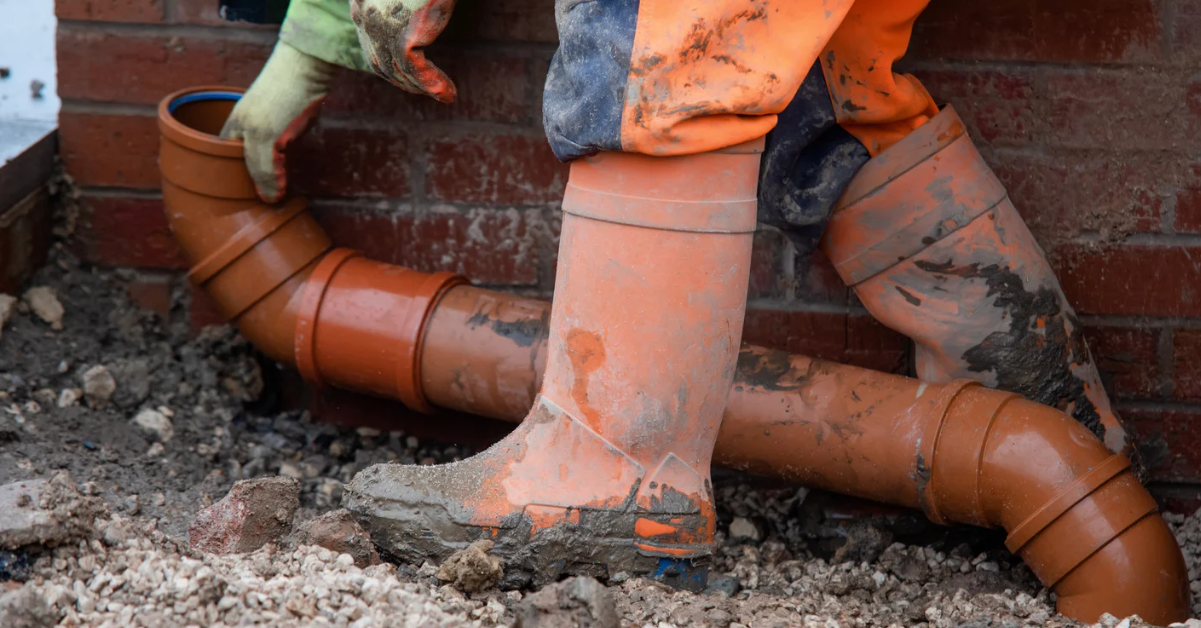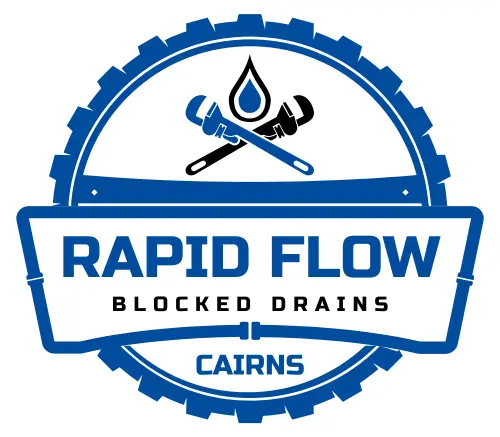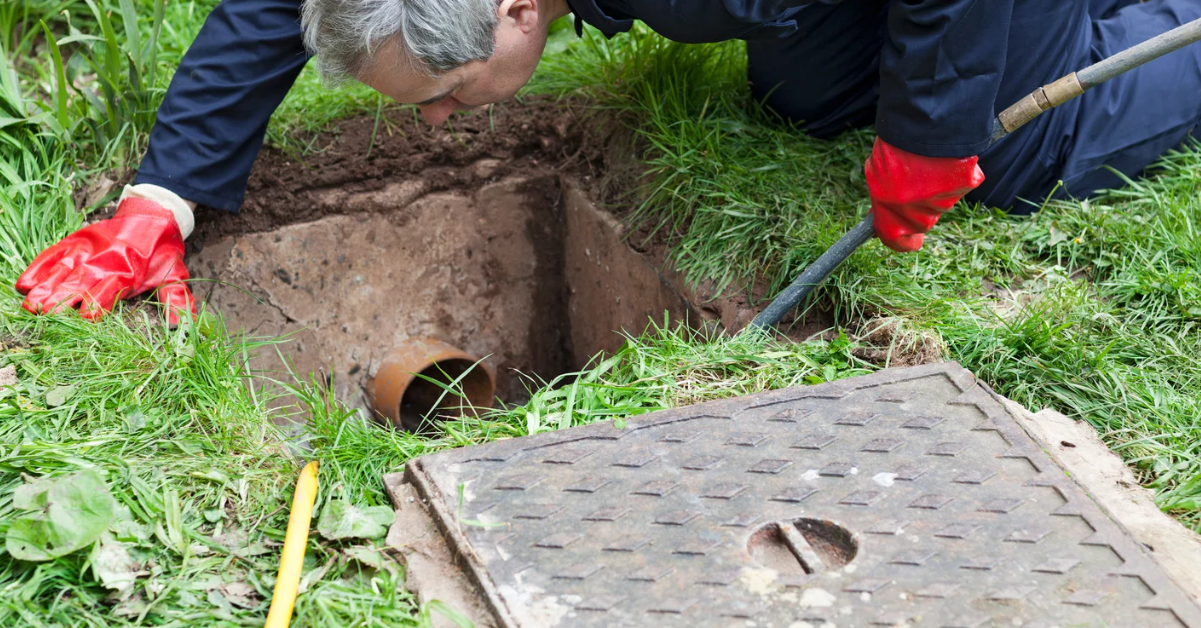Every homeowner in Cairns has dealt with a slow drain at some point, but many don’t realise just how serious this seemingly minor issue can become. What starts as water taking a bit longer to disappear down your kitchen sink can quickly escalate into a nightmare of overflowing toilets, foul odours, and expensive emergency repairs. In Queensland’s tropical climate, blocked drains pose unique challenges that can affect your family’s health, damage your property’s structure, and cost thousands of dollars if left untreated. Understanding why blocked drains matter so much in Cairns homes helps you protect your investment and keep your family safe from the hidden dangers lurking beneath your floors.
Common Causes of Blocked Drains in Cairns
Living in Cairns means dealing with specific drainage challenges that many other Australian cities don’t face. The combination of tropical weather, lush vegetation, and older housing stock creates perfect conditions for drain blockages that can catch homeowners off guard. Tree roots are perhaps the biggest culprit in our region, with species like fig trees and palm trees sending aggressive root systems deep underground in search of water sources. These roots can infiltrate even the smallest cracks in your pipes, growing larger over time until they completely obstruct water flow. The problem becomes worse during dry spells when trees become more desperate for water, pushing their roots further into drainage systems.
Grease and fat build-up represents another major cause of blocked drains in Cairns kitchens. Many residents don’t realise that pouring cooking oils, butter, or fatty food scraps down the sink creates a sticky coating inside pipes that traps other debris over time. In our hot, humid climate, this grease doesn’t solidify as quickly as it might in cooler regions, allowing it to travel further through your plumbing system before hardening into stubborn blockages. Combined with food particles, soap residue, and hair, these fatty deposits create dense clogs that resist simple home remedies and often require professional intervention to remove completely.
Foreign objects in toilets and sinks cause immediate and often severe blockages that can lead to overflow situations. Children’s toys, sanitary products, cotton buds, dental floss, and wet wipes are common offenders that homeowners flush without thinking about the consequences. Even items marketed as flushable often don’t break down properly in Queensland’s water systems, creating blockages that can affect multiple fixtures throughout your home. The tropical humidity in Cairns also means that paper products don’t decompose as expected, leading to more persistent clogs that can back up into your living spaces if not addressed quickly by professionals like RF Blocked Drains Cairns.
Health and Safety Risks of Ignoring Drain Problems
Blocked drains pose serious health risks that many Cairns homeowners underestimate until it’s too late. Standing water from blocked drains creates ideal breeding conditions for harmful bacteria, viruses, and parasites that can cause gastroenteritis, skin infections, and respiratory problems. In Queensland’s warm, humid environment, these pathogens multiply rapidly, turning a simple drainage issue into a health hazard for your entire family. Children and elderly family members are particularly vulnerable to waterborne illnesses that can develop when contaminated water backs up into sinks, showers, or toilet areas.
Mould growth from drain leaks represents another significant health concern in Cairns homes. When blocked drains cause water to seep into walls, under floors, or into ceiling cavities, the constant moisture creates perfect conditions for toxic mould species to flourish. Black mould, in particular, releases spores that can trigger severe allergic reactions, asthma attacks, and other respiratory conditions. The Queensland Department of Health warns that mould exposure can cause long-term health problems, especially for people with compromised immune systems or existing respiratory conditions.
Contaminated water backing up into your home poses immediate dangers that require emergency attention. When sewer lines become blocked, raw sewage can flow back through floor drains, showers, and toilets, bringing dangerous pathogens directly into your living space. This contaminated water contains E. coli, salmonella, hepatitis viruses, and other serious disease-causing organisms that can survive for weeks on surfaces throughout your home. Professional cleanup and sanitisation become necessary to ensure your family’s safety, adding significant costs to what might have been a simple drain cleaning job if addressed earlier.
Increased pest activity around blocked drains attracts unwanted visitors that can spread disease and damage your property. Stagnant water from drainage problems creates breeding grounds for mosquitoes, which are already a concern in Cairns due to our tropical climate and proximity to dengue fever risk areas. Cockroaches, rats, and other pests are also drawn to the moisture and organic matter that accumulates around blocked drains, potentially bringing additional health risks into your home environment.
Structural Risks to Cairns Homes
Foundation damage from water leaks caused by blocked drains can compromise your home’s structural integrity in ways that aren’t immediately visible. When drainage systems fail, water finds alternative paths through your property, often seeping into foundation walls, under concrete slabs, or into basement areas. Queensland’s clay-rich soils expand and contract significantly with moisture changes, and persistent water leaks from blocked drains can cause uneven soil movement that leads to foundation settling, cracking, or shifting that affects your entire home structure.
The unique challenges of building on Queensland’s reactive clay soils mean that even small drainage problems can have major consequences for Cairns homeowners. When blocked drains cause water to pool around your foundation, the clay underneath can swell dramatically, putting enormous pressure on foundation walls and potentially causing them to bow, crack, or fail completely. Conversely, when drains are functioning properly but then suddenly fail due to blockages, the rapid change in soil moisture can cause clay to shrink quickly, creating voids under your foundation that lead to dangerous settling and structural damage.
Flooding during Cairns’ wet season becomes exponentially worse when drainage systems are already compromised by blockages. Heavy rainfall that would normally be channeled away from your home through functional stormwater drains instead pools around your foundation, seeps into your basement or lower levels, and can cause extensive water damage to flooring, walls, and personal belongings. The Cairns Regional Council requires homeowners to maintain their drainage systems specifically because blocked drains contribute to neighbourhood flooding problems that affect entire communities during severe weather events.
Hidden water damage from slow leaks caused by partially blocked drains often goes undetected until major structural problems become apparent. Water seeping through walls or under floors can rot wooden structural elements, corrode metal supports, and weaken concrete over months or years before visible signs appear. By the time homeowners notice sagging floors, cracked walls, or doors that won’t close properly, the underlying structural damage may require tens of thousands of dollars in repairs that could have been prevented with timely drain maintenance.
Cost of Ignoring Blocked Drains in Cairns
Emergency callouts versus preventative maintenance represent a significant cost difference that many Cairns homeowners learn about too late. After-hours plumbing services during weekends, public holidays, or the middle of the night typically cost two to three times more than scheduled maintenance visits during regular business hours. What might cost A$200 for a routine drain cleaning during normal hours can easily become a A$600 emergency callout when your toilet overflows at midnight or your kitchen sink backs up during a dinner party. Professional plumbers in Cairns often charge premium rates for emergency services because they must respond immediately, work in difficult conditions, and interrupt their personal time to address urgent drainage problems.
The cascading effects of ignored drain problems multiply repair costs exponentially as time passes. A simple blocked drain that could be cleared for under A$300 can lead to thousands of dollars in water damage, mould remediation, structural repairs, and property restoration if left untreated. Insurance companies increasingly scrutinise claims related to gradual water damage, often denying coverage for problems that developed over time due to poor maintenance practices. Homeowners who ignore early warning signs of drain problems often find themselves facing repair bills that far exceed their insurance coverage limits.
Insurance implications of blocked drain damage can leave Cairns homeowners financially vulnerable in ways they never expected. Most standard home insurance policies exclude coverage for damage caused by lack of maintenance, including drain blockages that develop over time due to neglect. Even when insurance does provide coverage for sudden drainage failures, policy holders may face higher premiums, increased deductibles, or policy cancellation if they file multiple claims related to preventable drainage problems. The Insurance Council of Australia recommends regular maintenance documentation to support insurance claims, but many homeowners don’t realise this requirement until it’s too late.
Property value impacts from drainage problems can significantly affect your home’s market worth and saleability. Real estate agents report that homes with known drainage issues often sell for 10-15% below market value, and buyers frequently negotiate additional price reductions to cover anticipated repair costs. Professional building inspections routinely identify drainage problems as major concerns that can delay or derail property sales. Sellers who have neglected drain maintenance often face expensive repair requirements during the sales process, when time pressure and limited contractor availability drive costs even higher than normal market rates.

Frequently Asked Questions
What are the first signs of a blocked drain in Cairns homes?
The earliest warning signs of blocked drains in Cairns homes often appear gradually, making them easy to overlook until they become serious problems. Slow drainage is typically the first indicator, where water takes noticeably longer to disappear from sinks, showers, or bathtubs compared to normal flow rates. You might notice that your kitchen sink holds water for several seconds after washing dishes, or that shower water pools around your feet longer than usual during your morning routine. Gurgling sounds from drains when water is flowing elsewhere in your home indicate air trapped in the pipes due to partial blockages. For example, hearing gurgling from your bathroom sink when someone flushes a toilet suggests that drainage systems are struggling to move water efficiently through blocked or restricted passages.
Unpleasant odours emanating from drains represent another early warning sign that shouldn’t be ignored in Cairns’ humid climate. Sewer-like smells, rotting food odours, or musty dampness around drain areas indicate that organic matter is decomposing inside your pipes or that sewer gases are backing up through compromised drainage systems. These odours often become more noticeable during Queensland’s hot summer months when bacterial activity increases in stagnant water trapped behind blockages. Multiple drains showing symptoms simultaneously suggests that the problem exists in your main sewer line rather than individual fixture drains, requiring immediate professional attention to prevent more serious complications like sewage backups into your living spaces.
Can blocked drains damage property foundations?
Blocked drains pose serious threats to property foundations in Cairns due to our region’s challenging soil conditions and tropical climate patterns. When drainage systems fail to channel water away from your home effectively, excess moisture accumulates around foundation walls and under concrete slabs, causing Queensland’s reactive clay soils to expand dramatically. This soil expansion creates enormous pressure against foundation walls, potentially causing them to bow inward, develop cracks, or shift from their original positions. The problem becomes particularly severe during Cairns’ wet season when blocked drains prevent proper stormwater management, leading to persistent saturation of foundation soils that can compromise structural integrity over time.
Foundation damage from blocked drains often develops gradually over months or years, making it difficult to detect until serious structural problems become apparent throughout your home. Water seeping from compromised drainage systems can cause uneven soil moisture levels that lead to differential foundation settling, where some areas of your home’s foundation sink or shift while others remain stable. This uneven movement manifests as cracks in walls, doors and windows that stick or won’t close properly, uneven floors, and visible gaps between walls and ceilings. Professional foundation repairs resulting from drainage-related damage typically cost between A$5,000 and A$15,000 for minor issues, but can exceed A$50,000 for major structural restoration projects that require underpinning or complete foundation replacement.
How do blocked drains attract pests?
Blocked drains create ideal environments for pest infestations that can quickly spread throughout Cairns homes due to our warm, humid tropical climate. Stagnant water trapped behind blockages provides breeding grounds for mosquitoes, which are already a significant health concern in North Queensland due to dengue fever and other mosquito-borne disease risks. Female mosquitoes can lay up to 300 eggs at a time in standing water, and in Cairns’ consistently warm temperatures, these eggs can develop into adult mosquitoes within just seven days. Blocked floor drains, shower drains, and outdoor drainage areas become mosquito nurseries that continuously produce new generations of disease-carrying insects throughout the year.
Organic matter that accumulates in blocked drains attracts cockroaches, ants, and other insects that feed on decomposing food particles, grease, and soap residues trapped in pipes. These pests can squeeze through surprisingly small gaps around drain covers and pipes, establishing colonies in wall cavities, under floors, and in other hidden areas throughout your home. Rats and mice are also drawn to blocked drainage areas where they can access water sources and nesting materials, often chewing through pipe insulation, electrical wiring, and building materials to create pathways between drainage areas and living spaces. The Queensland Department of Health emphasises that pest control becomes significantly more difficult once infestations become established, making drain maintenance a crucial component of integrated pest management strategies for Cairns homeowners.
Why do blocked drains smell bad?
Blocked drains produce unpleasant odours due to several biological and chemical processes that occur when water flow becomes restricted or completely stopped. Organic matter trapped in blocked pipes, including food particles, grease, hair, soap scum, and human waste, begins decomposing in the absence of adequate water flow and oxygen. This anaerobic decomposition produces hydrogen sulfide gas, which creates the characteristic rotten egg smell that many Cairns residents associate with sewer problems. In Queensland’s warm climate, bacterial activity increases significantly, accelerating the decomposition process and intensifying odour production compared to cooler regions where bacterial activity remains more limited throughout the year.
Sewer gases backing up through blocked drains represent another major source of unpleasant odours that can affect indoor air quality throughout your home. When drainage systems become blocked, sewer gases that normally flow safely through vent pipes to the outside atmosphere instead find alternative pathways back into your living spaces through drain openings, floor drains, and fixture traps. These gases contain not only hydrogen sulfide but also methane, ammonia, and other toxic compounds that can cause headaches, nausea, and respiratory irritation with prolonged exposure. The water seals in drain traps that normally prevent sewer gas entry can be compromised by blockages that cause water levels to drop or become contaminated with decomposing organic matter.
Do blocked drains increase mould risks?
Blocked drains significantly increase mould risks in Cairns homes due to the excess moisture they create in our already humid tropical environment. When drains become blocked, water often finds alternative pathways through building structures, seeping into walls, under flooring, and into ceiling cavities where it creates persistently damp conditions ideal for mould growth. Queensland’s year-round warm temperatures and high humidity levels mean that mould spores can establish colonies within 24-48 hours of water exposure, spreading rapidly through building materials like drywall, insulation, carpet, and wooden structural elements that become saturated due to drainage problems.
Hidden mould growth from drain-related moisture problems often goes undetected until it becomes extensive enough to cause visible staining, structural damage, or health symptoms in residents. Professional mould remediation typically costs between A$2,000 and A$10,000 for moderate infestations, but can exceed A$20,000 when extensive building materials require removal and replacement. The Queensland Department of Health warns that certain mould species common in tropical climates can produce mycotoxins that cause serious health problems including respiratory infections, allergic reactions, and neurological symptoms. Preventing mould growth through proper drain maintenance is far more cost-effective than dealing with established mould colonies that may require professional remediation, temporary relocation during treatment, and replacement of contaminated personal belongings.
Conclusion
Blocked drains represent far more than minor inconveniences for Cairns homeowners. The combination of tropical climate conditions, challenging soil types, and abundant vegetation creates unique drainage challenges that can quickly escalate into serious health hazards, structural damage, and expensive repair bills. Understanding the early warning signs of drainage problems and taking prompt action can save thousands of dollars while protecting your family’s health and your property’s value. From tree root intrusions that crack foundation walls to mould growth that threatens respiratory health, the consequences of ignoring blocked drains extend far beyond simple plumbing issues.
Professional intervention becomes essential when drainage problems persist despite basic maintenance efforts or when multiple symptoms appear simultaneously throughout your home. Licensed plumbers have specialised equipment and expertise to diagnose complex drainage issues accurately and implement long-lasting solutions that address underlying causes rather than just temporary symptoms. Emergency situations like sewage backups, overflowing toilets, or persistent foul odours require immediate professional attention to prevent further damage and protect your family’s safety.
For more information about blocked drains services at RF Blocked Drains Cairns, check them out below:





